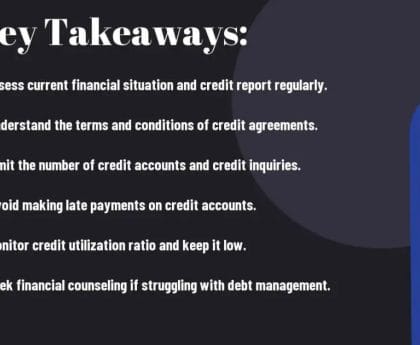Credit scores are one of those terms that sound complicated and confusing, yet they are incredibly vital in today’s world. Your credit score is a three-digit number that reflects your creditworthiness and indicates how likely you are to repay your debts. In India, credit scores are gaining more attention, and there’s a growing need for people to understand them. As the Indian economy continues to grow, credit scores play a critical role in accessing loans, setting interest rates, and determining if you’re eligible for various financial products.
In this blog post, we will uncover the mysteries of credit scores, how they work, what factors affect your score, and why it’s essential to maintain a healthy credit score. This post aims to educate our readers about credit scores and how it can impact their financial lives. Whether you’re a student, employee, or business owner, credit scores affect us all. From getting a loan for a new car to renting an apartment to purchasing a home, your credit score plays a vital role in achieving your financial goals. In the following paragraphs, we will delve deeper into credit scores, how they work in India, and what you need to know to maintain a good credit score.
- Tip 1: Make sure to pay your bills on time, as any defaults or late payments can negatively impact your credit score.
- Tip 2: Keep your credit utilization ratio low by using your credit card sparingly and paying off your balance each month.
- Tip 3: Check your credit report regularly to ensure that all information reported is accurate and up-to-date.
- Conclusion
Tip 1: Make sure to pay your bills on time, as any defaults or late payments can negatively impact your credit score.
It may seem like a simple task, but paying your bills on time is one of the most crucial steps in maintaining a good credit score. Skipping a payment or defaulting on a bill can negatively impact your credit history and can take a long time to repair.
The effects of a missed payment can vary depending on the type of bill and the length of time it goes unpaid. For example, missing a credit card payment may result in a late fee and an increased interest rate, both of which will hurt your credit score. On the other hand, defaulting on a loan or mortgage payment can severely damage your credit history and result in collection agencies getting involved.
To help ensure you don’t miss any payments, consider setting up automatic payments for your bills. Many banks and credit card companies offer this service, which will automatically deduct the payment amount from your account on a set date each month. This can help you stay on top of your bills and avoid any missed payments.
If you do find yourself in a situation where you’re unable to make a payment, it’s important to communicate with your creditors. Contact them as soon as possible to discuss your options. Ignoring the problem will only make it worse, and your creditors may be more willing to work with you if you’re proactive in finding a solution.
In addition to paying your bills on time, it’s important to review your credit report regularly. This will help you spot any errors or inaccuracies that may be negatively impacting your score. You can request a free copy of your credit report from each of the three major credit bureaus once per year.
By following these tips and tricks, you can help ensure that your credit score stays healthy and you’re able to access the credit you need when you need it. Remember, small steps like paying your bills on time can have a big impact on your financial future.
Tip 2: Keep your credit utilization ratio low by using your credit card sparingly and paying off your balance each month.
Keep your credit utilization ratio low by using your credit card sparingly and paying off your balance each month.
Your credit utilization ratio refers to the amount of credit you are using compared to the amount of credit available to you. It is a crucial factor in determining your credit score. Experts recommend keeping your credit utilization ratio below 30% to maintain a good credit rating.
Here are some tips to keep your credit utilization low:
1. Use your credit card for essential purchases only. Avoid using it for frivolous expenses that you can pay for in cash.
2. Set a budget and stick to it. This will help you stay within your credit limit and avoid overspending.
3. Pay off your balance in full each month. This will reduce the amount of debt you carry and prevent interest charges from accumulating.
4. Consider increasing your credit limit. If your credit card issuer agrees to increase your limit, your credit utilization ratio will automatically decrease.
5. Monitor your credit utilization regularly. You can track your progress on credit monitoring websites or through your credit card issuer’s online portal.
Keeping your credit utilization ratio low can be challenging, but it is essential for maintaining good credit. By using your credit card sparingly and paying off your balance each month, you can keep your credit score in good standing and improve your financial health.
Remember to always focus on responsible credit card usage, and your credit utilization ratio will fall into place naturally. A good credit score means you may become eligible for more financial products like loans and credit cards, with lower interest rates, and more affordable payment plans. Start working on improving your credit score today!
Tip 3: Check your credit report regularly to ensure that all information reported is accurate and up-to-date.
Tip 3: Check your credit report regularly to ensure that all information reported is accurate and up-to-date.
If you want to maintain a healthy credit score, one of the most important things you can do is to regularly check your credit report. Checking your credit report helps ensure that all of the information reported about you is accurate and up-to-date. Here are some key factors to consider when checking your credit report:
• Check for accuracy: Make sure that all of the information on your credit report is accurate. This includes your personal information, such as your name and address, as well as your credit history.
• Check for errors: Look for any errors or discrepancies in your report. If you find any, contact the credit bureau right away to get them corrected.
• Check for fraudulent activity: If you notice any accounts that you don’t recognize, or if there are any suspicious activities reported on your report, contact the credit bureau immediately to report the fraud.
• Check for outdated information: Make sure that the information on your credit report is up-to-date. This includes any delinquent payments, collections, or public records.
• Monitor your score: Additionally, you should monitor your credit score to make sure it’s in good shape.
By regularly checking your credit report and monitoring your credit score, you can help ensure that your credit is in good health. This can help you stay on top of any potential issues and keep your credit score in good standing.
Conclusion
In conclusion, understanding how credit scores work in India is an important step towards improving your financial life. By following the tips outlined in this blog post, you can ensure that your credit score remains high and that you are able to access more favorable lending terms. By having a good credit score, you will be able to better manage your finances and access opportunities that are not available to those with a lower credit score. Ultimately, taking the time to learn about credit scores in India and follow the tips outlined here can help you to have a better financial future.
FAQ
Q: What is a credit score?
A: A credit score is a three-digit score assigned to individuals based on their credit history and financial behavior. It is used by lenders and financial institutions to assess the creditworthiness of individuals.
Q: How is a credit score calculated in India?
A: In India, credit scores are calculated by credit bureaus such as CIBIL, Equifax, and Experian. These bureaus collect data from banks and financial institutions and create credit reports for individuals. The credit score is calculated based on factors such as payment history, credit utilization, and credit inquiries.
Q: What is the range of credit scores in India?
A: The credit score range in India is between 300 and 900, with 900 being the highest score. A score above 750 is considered good. It makes it easier for individuals to obtain loans and credit cards at favorable terms.
Q: How does payment history affect credit scores?
A: Payment history is one of the most important factors that determine credit scores in India. Late payments or defaults can have a negative impact on credit scores, while timely payments can improve them.
Q: How does credit utilization affect credit scores?
A: Credit utilization is the percentage of available credit that an individual uses. A high credit utilization ratio can have a negative impact on credit scores as it indicates a higher risk of default. You should generally maintain a credit utilization ratio of below 30%.
Q: How long does information stay on credit reports in India?
A: Generally, credit information stays on credit reports for up to seven years in India. However, if a loan or credit card is still active, the information will continue in the report.
Q: How can individuals check their credit scores in India?
A: Individuals can check their credit scores by applying for a credit report online through credit bureaus such as CIBIL, Equifax, and Experian. They can also receive a free credit report once a year as per Reserve Bank of India guidelines.
Q: How can individuals improve their credit scores in India?
A: To improve credit scores in India, individuals can make timely payments, maintain a low credit utilization ratio, and avoid applying for multiple loans or credit cards simultaneously. It is also important to regularly check credit reports and correct any errors that may be present.
Q: Can a low credit score affect loan approvals in India?
A: Yes, a low credit score can make it difficult for individuals to obtain loans and credit cards in India. Lenders consider credit scores when deciding whether to approve a loan or credit application.
Q: What is a good credit score in India?
A: A credit score of 750 or above is a good credit score in India. However, this may vary based on the lender’s criteria.
Q: How can I check my credit score in India?
A: You can check your credit score for free once a year from any of the credit bureaus in India. You can also purchase your credit score online from the bureaus.
Q: How can I improve my credit score in India?
A: You can improve your credit score in India by making timely repayments, avoiding overuse of credit, maintaining a good credit mix, and correcting any errors in your credit report.
Q: Can my credit score be affected by my spouse or family members?
A: No, your credit score is independent of your spouse or family members. However, if you have taken a joint loan, the credit score of both borrowers will be affected.
Q: How long do late payments stay on my credit report in India?
A: Late payments can stay on your credit report for up to 7 years.
Q: Can I dispute errors on my credit report in India?
A: Yes, you can dispute errors on your credit report in India by contacting the credit bureau and providing relevant evidence to support your claim.
Q: Does applying for credit affect my credit score in India?
A: Yes, applying for credit can affect your credit score in India as it results in a credit inquiry. Too many credit inquiries can lower your credit score.
Q: What are the consequences of having a low credit score in India?
A: Having a low credit score in India can make it difficult to get approved for loans and credit cards. It may also result in higher interest rates and less favorable loan terms.






